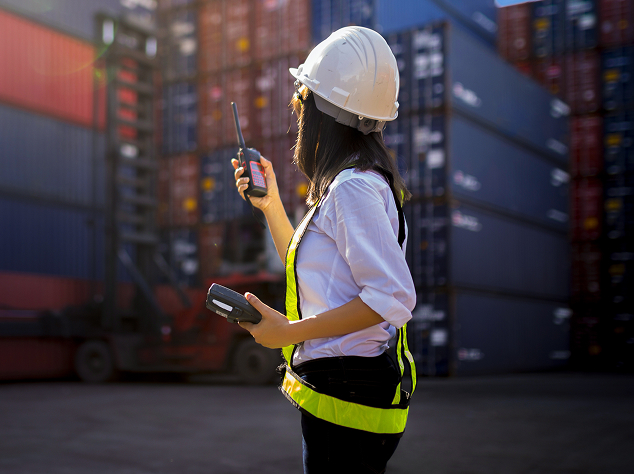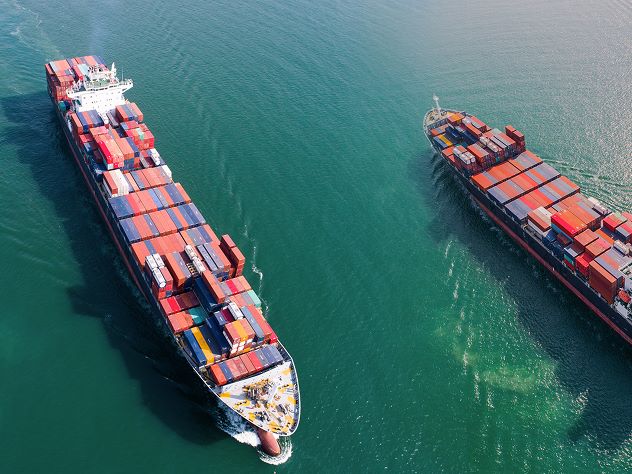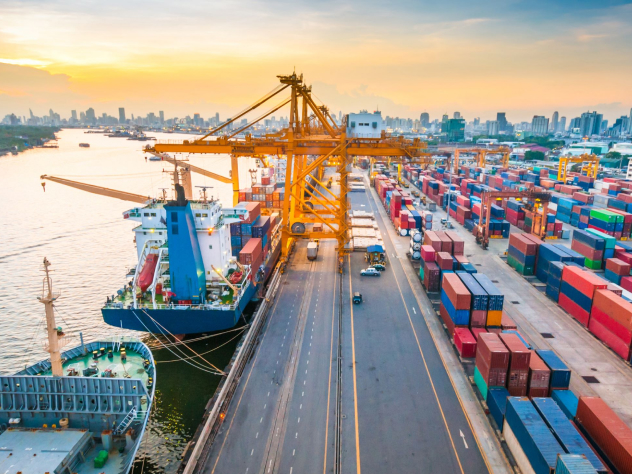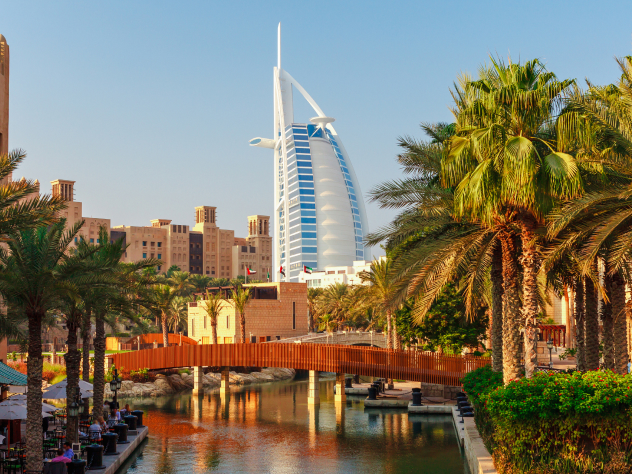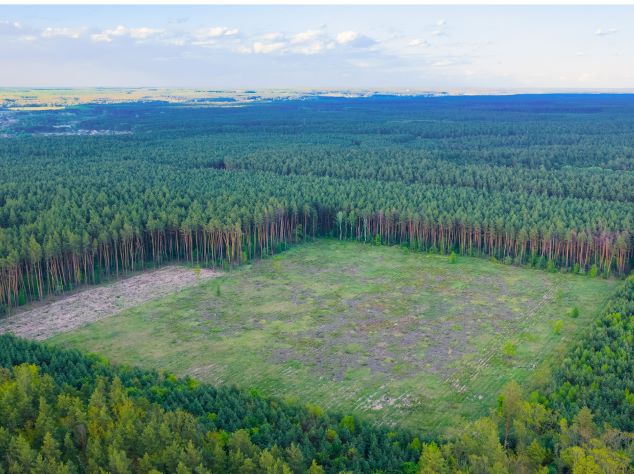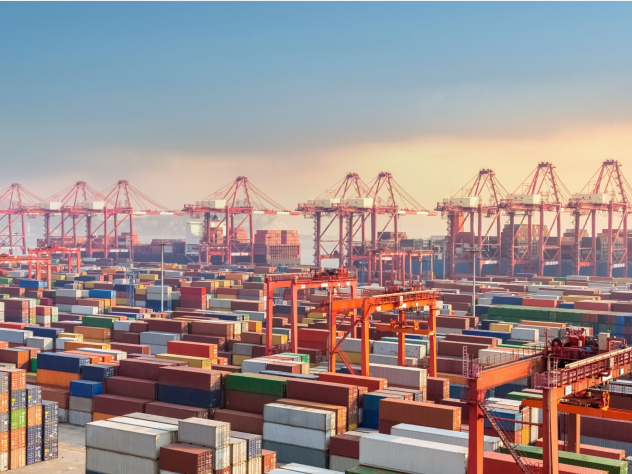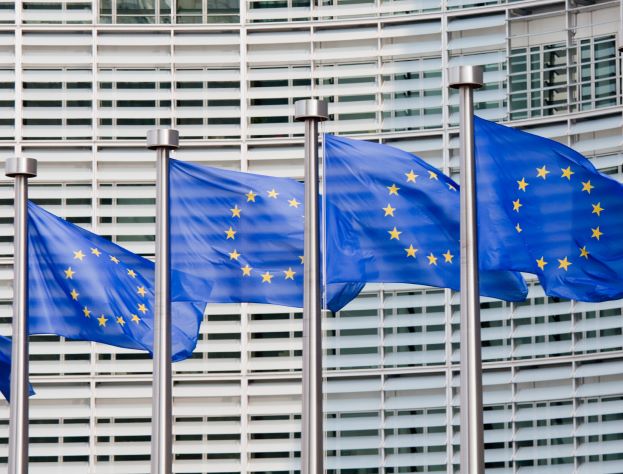Back Essential updates on EU customs regulations
How to
Webinar recap—essential updates on EU customs regulations
The EU is rolling out significant changes to customs regulations. Given the scale of the changes, we discussed what this means for business.
On March 27, Kuehne+Nagel hosted a webinar titled “Be prepared—essential updates to EU customs regulations” which attracted over 900 participants.
During this lively discussion, Kuehne+Nagel’s customs expert, Marc Bernitt, Head of Customs EMEA and Asia, explained the implications of these changes for businesses and provided actionable insights for a smooth transition and compliance. He also covered key updates, such as the EU Customs Reform, the EU Deforestation Regulation (EUDR), and the Carbon Border Adjustment Mechanism (CBAM).
Ready to learn more about these EU customs regulations? Watch our webinar recording and read our Q&A for expert answers to audience questions.
Webinar Q&A
Carbon Border Adjustment Mechanism (CBAM)

 As a small company producing accessories and parts made out of steel, which entity is best placed to support your efforts?
As a small company producing accessories and parts made out of steel, which entity is best placed to support your efforts?
You can contact Kuehne+Nagel for assistance.

 With simplifications hopefully ahead, do I still need to apply for certificates as well as a CBAM declarant?
With simplifications hopefully ahead, do I still need to apply for certificates as well as a CBAM declarant?
With the expansion of all industrial products being governed by CBAM, it is advisable to apply now as a CBAM declarant. This will prevent your company from suffering from prolonged application time and ensure all the necessary requirements are in place to file future CBAM reports.

 Regarding the single point of entry into the EU, why is there a difference if you import into one or more EU ports? Is there an obligation to do the annual report for CBAM for each country where my business does customs clearing?
Regarding the single point of entry into the EU, why is there a difference if you import into one or more EU ports? Is there an obligation to do the annual report for CBAM for each country where my business does customs clearing?
With the requirement to lodge CBAM reports in relation to the country of import, having multiple entry points in terms of countries will lead to an influx of multiple CBAM reports. By consolidating imports into one EU country, businesses will reduce associated admin and only have to file one CBAM report for all imports in said EU country.

 Would I need proof that our supplier's material is sustainably sourced?
Would I need proof that our supplier's material is sustainably sourced?
Every company subject to the EUDR needs to complete an EUDR due diligence statement and carry out a deforestation risk assessment for its products. The due diligence statement requires submission of a specific set of data about company products, which must be provided before goods can be sold in the EU.
In addition, it requires the collection of comprehensive information, data, and documents about the products, the country of production, and even the specific (geolocated) plots where the relevant commodities were produced. Supplier due diligence is the process of gathering information to understand the credibility and suitability of a prospective partner or vendor. It aims to assess their security posture to identify any potential risks.
Conducting supplier due diligence can help guide decision-making when choosing the right vendor, detect risks with potential suppliers and protect customer data. It is also considered good business practice and can help mitigate future financial and reputational damage caused by a data breach.

 What is the price of a CBAM emission certificate per tonne?
What is the price of a CBAM emission certificate per tonne?
Costs are currently priced around €70 per tonne of CO2, with a linear forecast of €250 by 2034 applied to the estimation.

 Can you elaborate on the “less than 50 tonnes of goods” threshold regarding CBAM?
Can you elaborate on the “less than 50 tonnes of goods” threshold regarding CBAM?
According to the current omnibus proposal, businesses importing less than 50 tonnes of CBAM goods will not need to apply CBAM regulations. However, this has not been decided in the EU parliament. With the expansion of all industrial products under CBAM, this tonnage threshold may easily be fulfilled by companies that currently fall under the threshold but may, in the future, through the expansion of all goods, fall under CBAM scope.
EU Customs Reform

 Does the new classification of goods only apply to e-commerce, or to other importers too?
Does the new classification of goods only apply to e-commerce, or to other importers too?
The five-category bucket list only applies to e-commerce firms.

 How does a business qualify for Trust and Check (T&C) trader status?
How does a business qualify for Trust and Check (T&C) trader status?
An incumbent Authorised Economic Operator (AEO) will not automatically become a T&C trader. AEOs will need to meet the additional requirements specific to the T&C approach, particularly implementing an electronic system capable of interacting with customs systems for real-time data exchange. The transition to T&C status might require investment in technology and processes to meet the new standards of data provision and interaction with customs authorities.

 Will the duty-free treatment for parcels worth less than €150 be abolished?
Will the duty-free treatment for parcels worth less than €150 be abolished?
Yes, this will be completely abolished.

 How will the reform affect the role of customs specialists and brokers?
How will the reform affect the role of customs specialists and brokers?
Customs specialists and brokers will still be in high demand. With the influx of technology and additional regulatory requirements, specialists and brokers must adapt to expand their customs expertise, incorporating new processes such as EU Deforestation Regulation (EUDR), CBAM, and the technology requirements to interact with the new EU data hub. For brokers, national reliance will diminish with a shift to solely communicating with the EU-wide data hub for clearances.

 Will customs specialists need to adopt new software or reporting standards?
Will customs specialists need to adopt new software or reporting standards?
Yes, Trust and Check traders i.e. importers and exporters need to adapt to the new standards. One main requirement to be fulfilled is to provide real time data to the EU data hub.
EU Deforestation Regulation (EUDR)

 Does EUDR apply to raw materials or processed goods? For instance, timber versus a piano.
Does EUDR apply to raw materials or processed goods? For instance, timber versus a piano.
The EUDR scope covers seven specific commodities: cocoa, coffee, soy, palm oil, wood, rubber, and cattle, and their derivatives, as well as the products made or fed with these commodities (including beef, leather, cosmetics, chocolate, and furniture).

 If you import a product made from a raw material that falls under CBAM, is it still necessary to submit a Due Diligence Statement (DDS) to your national customs authorities? For example, when importing palm-based stearates.
If you import a product made from a raw material that falls under CBAM, is it still necessary to submit a Due Diligence Statement (DDS) to your national customs authorities? For example, when importing palm-based stearates.
Yes, the DDS must be submitted 72 hours before the goods are imported.

 In the context of implementing the EUDR, when lodging a customs declaration for exports outside the EU, does customs accept that each exported product can have its own reference number, or is a single reference number for the entire consignment required via the Trade Control and Expert System (TRACES)?
In the context of implementing the EUDR, when lodging a customs declaration for exports outside the EU, does customs accept that each exported product can have its own reference number, or is a single reference number for the entire consignment required via the Trade Control and Expert System (TRACES)?
TRACES has nothing to do with EUDR. With EUDR, you can apply for one DDS statement that applies to multiple shipments.

 My business’ parts are imported on pallets, wooden crates, or similar materials. How does the EUDR regulation apply to packaging? Should I expect any potential issues?
My business’ parts are imported on pallets, wooden crates, or similar materials. How does the EUDR regulation apply to packaging? Should I expect any potential issues?
The EUDR supports a circular economy by encouraging companies to reuse and recycle packaging rather than relying on continuously using new resources. For the wood packaging industry, this means creating systems to facilitate the return and refurbishment of pallets, crates, and other wood products. EUDR applies to the first import of pallets made outside the EU and imported as commodities. EUDR does not apply to the regular usage of imported pallets.
CBAM and EUDR

 Under EUDR and CBAM regulations, importers must now be provided with information on production sites. Given this new setup, what is to stop an importer from using this information to trade directly with the producer and not the initial supplier?
Under EUDR and CBAM regulations, importers must now be provided with information on production sites. Given this new setup, what is to stop an importer from using this information to trade directly with the producer and not the initial supplier?
Nothing, there is a risk here.
Further remarks

 The tariffs introduced at the beginning of 2025 have already been applied to a long list of products from the USA. Do you have any current updates about planned short-term tariff actions in the EU?
The tariffs introduced at the beginning of 2025 have already been applied to a long list of products from the USA. Do you have any current updates about planned short-term tariff actions in the EU?
The EU has confirmed a pause on retaliatory tariffs as negotiations progress until July.

 Do you think this raft of EU legislation, as well as other initiatives such as Extended Producer Responsibility (EPR), will make it increasingly difficult for small businesses to trade with the EU?
Do you think this raft of EU legislation, as well as other initiatives such as Extended Producer Responsibility (EPR), will make it increasingly difficult for small businesses to trade with the EU?
Yes and no. Regarding the European Green Deal, it is important to understand that several countries, such as the UK, Norway, Singapore, Japan, China, and multiple others, have or are contemplating similar regimes to battle climate change.



